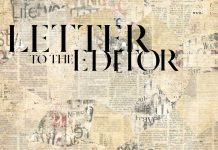It can be hard to find the mail that really matters in an
avalanche of Valu-Paks, Victoria
’s Secret catalogs and fliers for the new Oakwood Country
School, but sorting through a pile of solicitations and come-ons is
more important than it used to be.
It can be hard to find the mail that really matters in an avalanche of Valu-Paks, Victoria’s Secret catalogs and fliers for the new Oakwood Country School, but sorting through a pile of solicitations and come-ons is more important than it used to be.
Recently, Santa Clara County voters and homeowners have received special-election ballots in the mail; one to raise money for libraries and another to fight West Nile Virus. Those promise to be just the beginning.
For all the advances in election technology, the latest voting trend is decidedly low-tech and may be the one that dramatically changes how we vote. More and more, the democratic process is happening in the mailbox. And while mail-voting is presented as the most convenient way to cast a ballot, there is increasingly an ulterior motive at work: the mail-only ballot is a way for schools, libraries and every other variety of government agency to get ballots in the hands of voters most likely to approve parcel tax and bond measures.
“There’s a consistent trend of people taking advantage of absentee ballots,” said Terry Christensen, professor of political science at San Jose State University. “As absentee voting has become more popular, some states, counties and cities have been moving in this direction. It’s now being used to take advantage of a very narrowly specified electorate in hopes that it would be easier to pass a measure by mail rather than in a general election.”
That scenario played out this spring, as the county library system used an all-mail ballot to pass a parcel tax measure similar to one that had failed in the primary election a year before. The special election wasn’t a strategic move – had the library system waited for the general election in November, it would have lost a year of the $5.4 million in funding the measure provides – but library supporters were able to exploit the benefits of a mail ballot.
Morgan Hill City Councilman Steve Tate, who is also a member of the library system’s Joint Powers Authority, said the all-mail ballot’s month-long voting window was integral to the measure’s success. Library supporters spent weeks first canvassing registered voters and then recalling those who pledged to vote yes.
“We felt it gave us an opportunity to target positive voters and spend a lot of time making sure they voted,” Tate said.
The all-mail ballot is catching on as a way to boost voter turnout, particularly in local, low-interest elections. John Lindback, director of the election division for the secretary of state in Oregon, said that turnout in single-issue elections in small municipalities there has risen from less than 10 percent to sometimes as high as 30 percent since that state went to mail-only ballots in the 1990s. California may follow Oregon’s lead. Assemblywoman Carol Liu, D-Pasadena, has introduced a bill to experiment with mail-only ballots for all elections through 2010.
But a major advantage of a special, all-mail election is that a low turnout of voters with a strong interest in the issue makes it easier for supporters to rally the votes they need.
Bruce Altschuler, a political science professor at the State University of New York at Oswego, said the same forces that work for special measures can also be used against them. There wasn’t a great deal of organized opposition to the library measures, but Measure B failed by fewer than 800 votes here in Santa Clara County.
“The disadvantage of a special election is that a very low turnout makes it easier for a group trying to organize voters to vote no. Because these are such low-turnout elections it wouldn’t take a lot of additional voters to change the outcome.”
Altschuler said that mail-ballots are beginning to alter the way campaigns are run.
“They change the dynamics of an election considerably. Candidates have to go out and campaign much earlier,” he said. “Traditionally, with limited funds you save your money for a last-minute advertising blitz. With people voting two weeks beforehand this isn’t a good strategy. It makes elections more expensive.”
“Political leaders and consultants are always looking for winning strategies,” Christensen said. “This is a little bit different way to do an election. I think we’ll see it attempted much more frequently because of that.”







